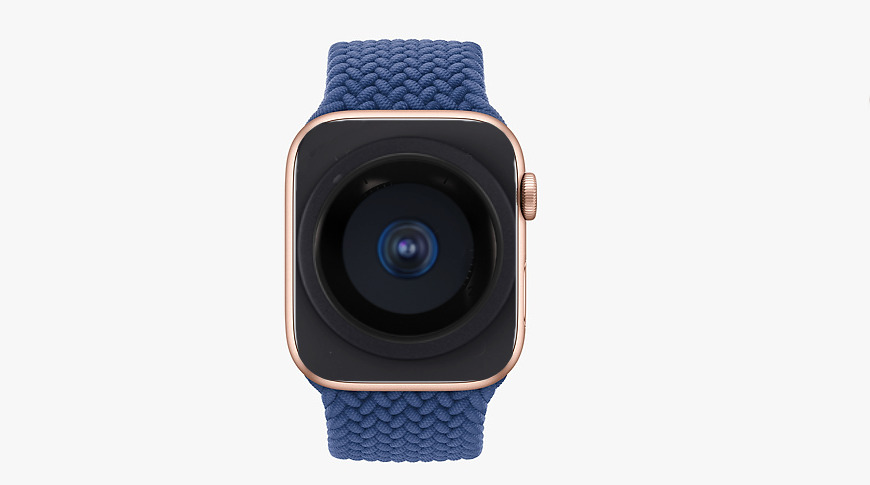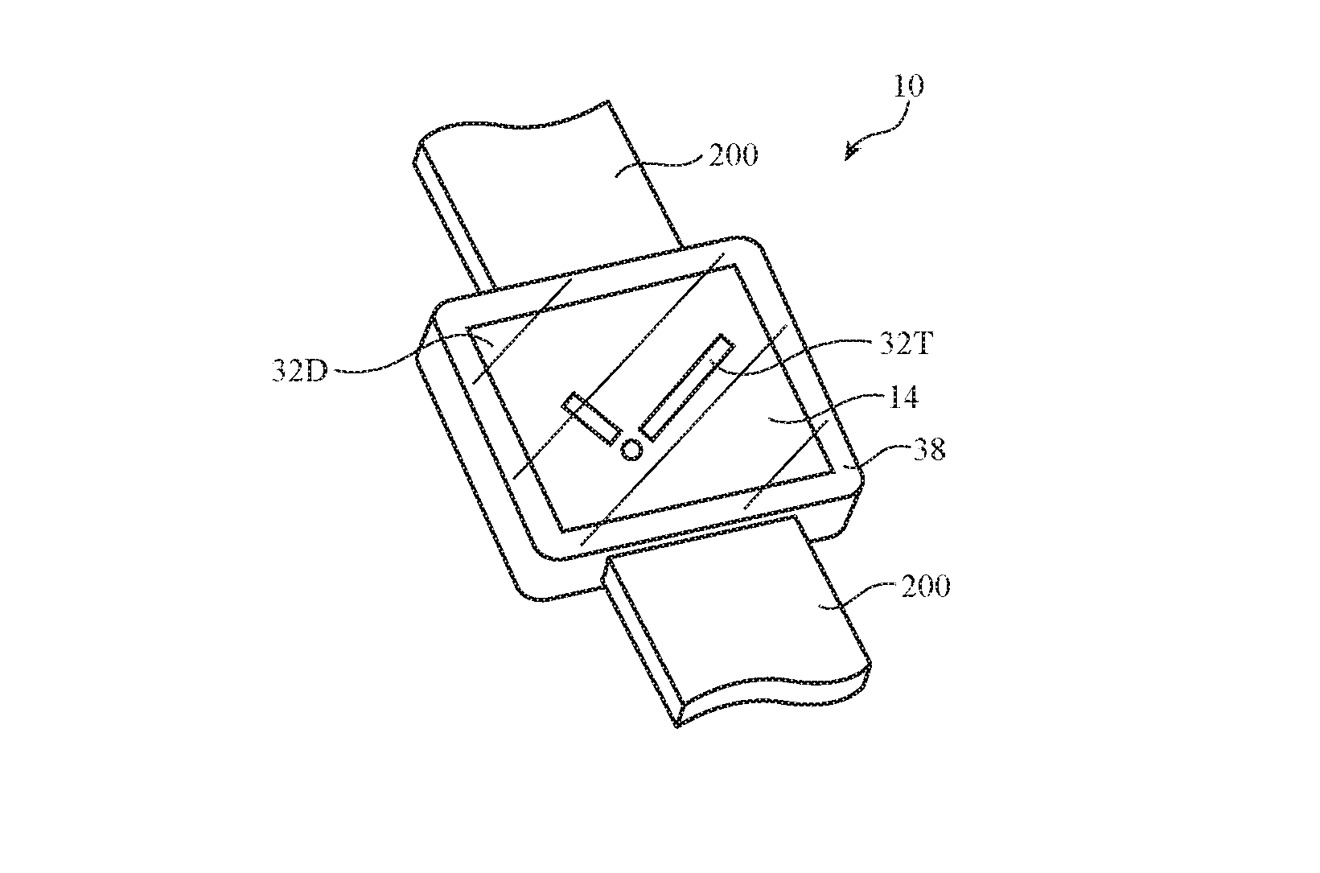The display of a future Apple Watch, iPhone, or any Apple screen, may be able to contain a camera and camera flash which are externally visible only when needed.
The sole thing that stops the Apple Watch a wrist-worn video communicator popularized by a great deal of entertainment, is that it lacks a camera. Apple may have now solved that, though, with a newly-granted patent that in part describes embedding a camera and flash within a display.
"Electronic devices with two-stage displays," is concerned with producing a screen that has layers of different display technologies. It's ostensibly for any conceivable device with a screen — and Apple lists the broadest possible range of those — but much of the patent describes the Apple Watch.
"Electronic devices such as cellular telephones sometimes have displays and other optical components such as cameras and camera flash devices," begins the patent. "It can be challenging to incorporate optical components such as these into an electronic device."
"Displays may also be unattractive when not in use," it continues. "In some configurations, devices will have unattractive windows to accommodate cameras and flashes."
If that description makes you think of the notch on the front of an iPhone, or the camera bump on the back, it's possible that this patent could be used to address both. What it details in the main, though, is how a small screen can include layers that provide different functions for the Apple Watch.
"An electronic device may be provided with a two-stage display," it says. "The display may have an inner layer with a pixel array for displaying images and an outer layer formed from a light modulator with an array of cells that can each be placed in a transparent mode or a light-blocking mode."
The patent describes having first a type of fast-reacting display that is capable of showing video. Then on top of that there could be a second display layer that's typically used to show slow-changing images, such as text.
That layer could be effectively turned off to allow users to see the video on the layer below, or it could be turned on to change the appearance of the device. In that case, a camera shutter "may have an appearance that matches the housing of the electronic device."
"When it is desired to capture images, control circuitry in the electronic device may temporarily place the shutter in a transparent mode to allow light from a flash and/or light being imaged by the camera to pass," continues the patent.
This patent is credited to eight inventors, including the prolific James R. Wilson. His previous work includes related patents on how "Apple Glass" could also feature cameras that are hidden when not in use.
 William Gallagher
William Gallagher








-m.jpg)






 Malcolm Owen
Malcolm Owen
 Mike Wuerthele
Mike Wuerthele
 Andrew Orr
Andrew Orr
 Andrew O'Hara
Andrew O'Hara



 Christine McKee
Christine McKee




-m.jpg)


2 Comments
If the PWM/shutter rate is high enough one could have both a camera and display simultaneously. Exploiting the same aspect of human vision which gives the appearance of persistent images despite the display flickering at high frequencies.
That image... "Open the pod bay doors, HAL"